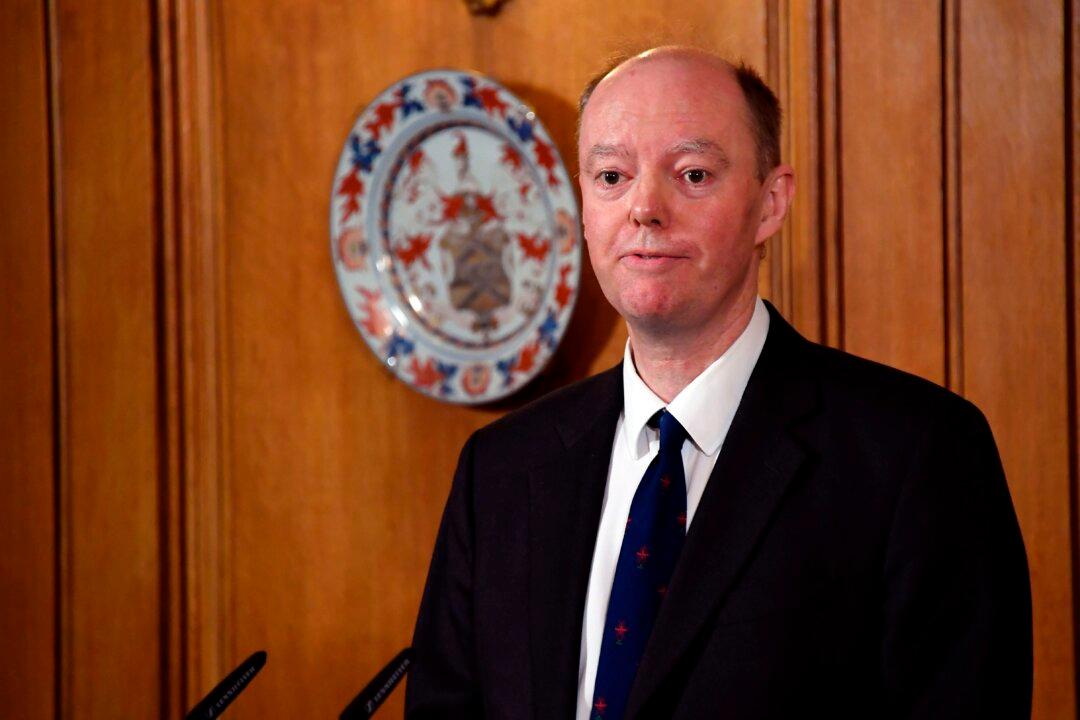While England’s chief medical and scientific advisers warned on Monday of the need to urgently halt a possible exponential growth in deaths from COVID-19, Conservative lawmakers are calling for Parliament to have a greater say on CCP virus restrictions.
Chief Medical Officer Chris Whitty said in a televized briefing that the number of deaths from COVID-19 “will continue to rise, potentially on an exponential curve, that means doubling and doubling and doubling again, and you can quickly move from really quite small numbers to really very large numbers.”





